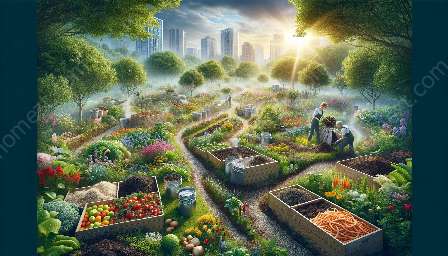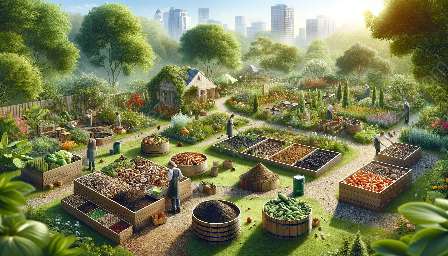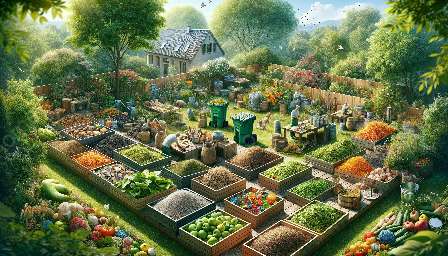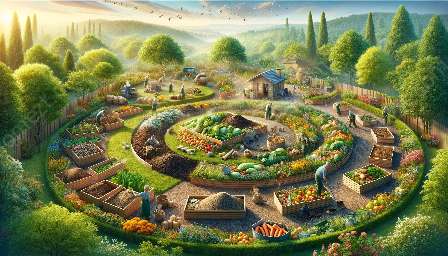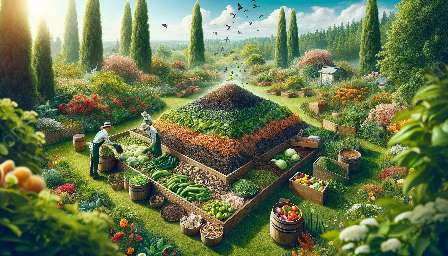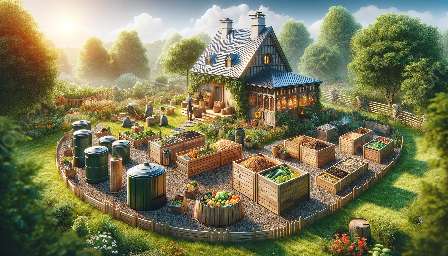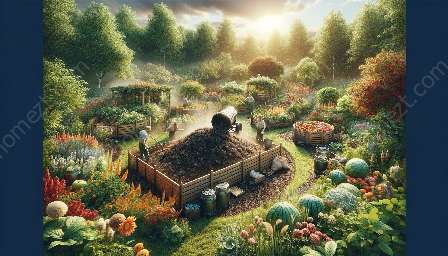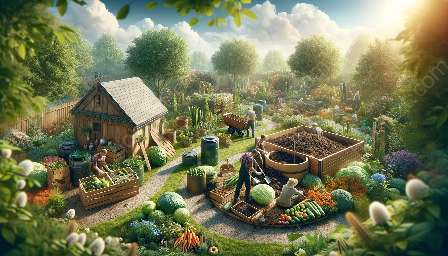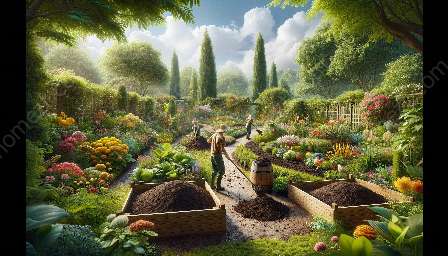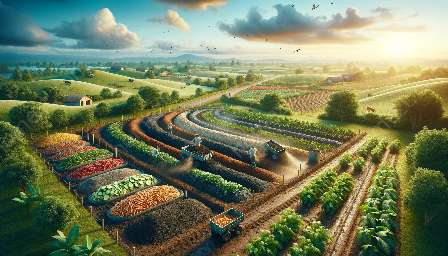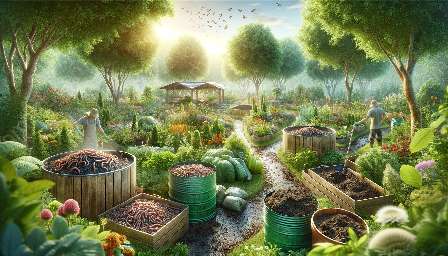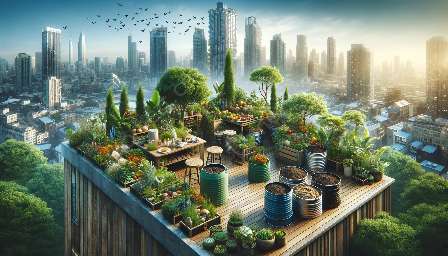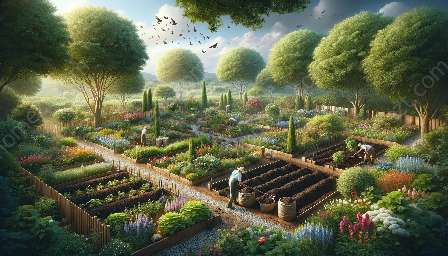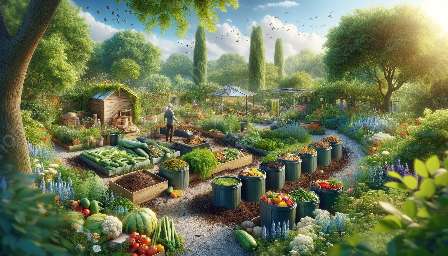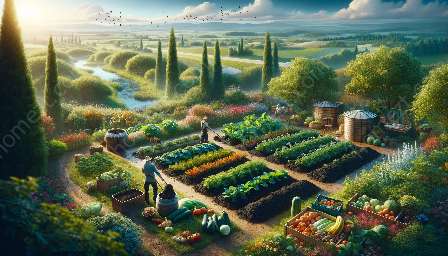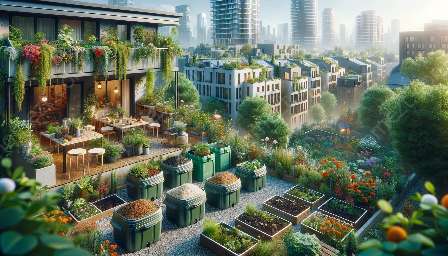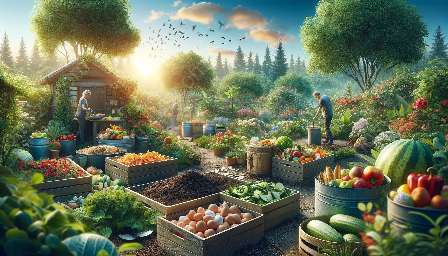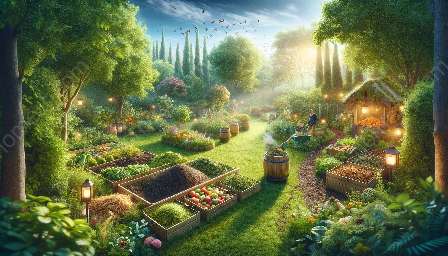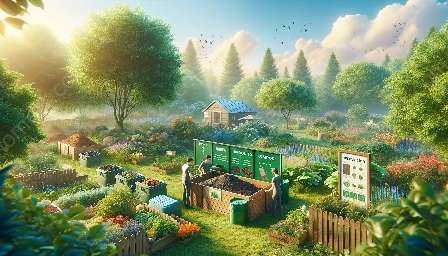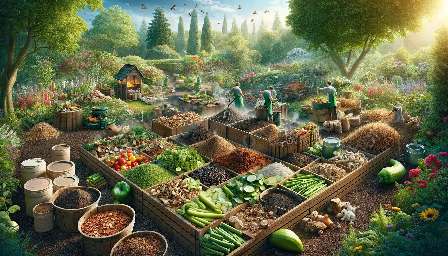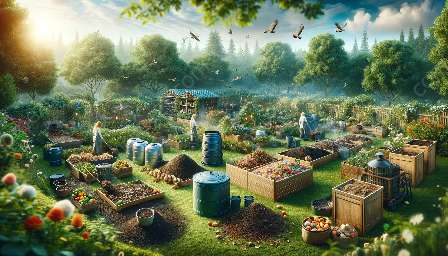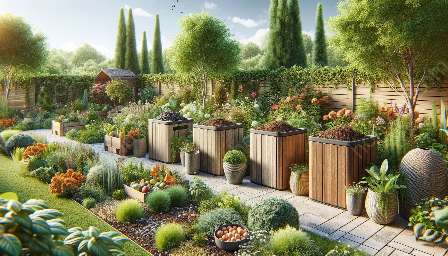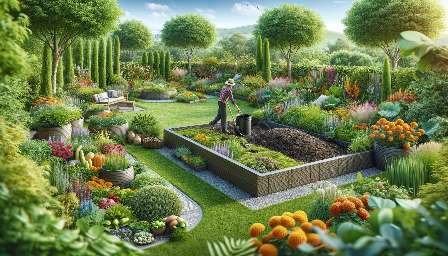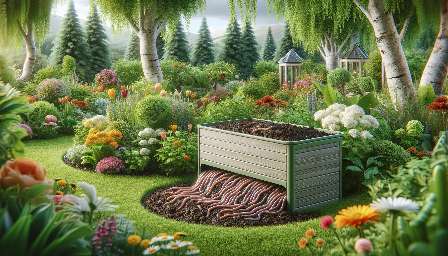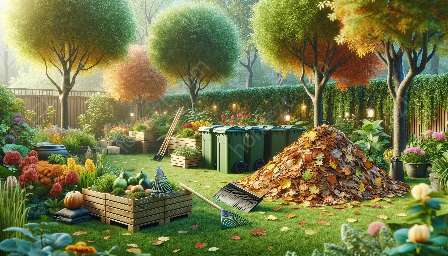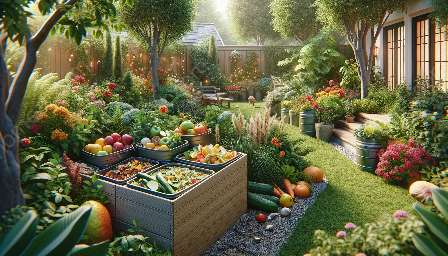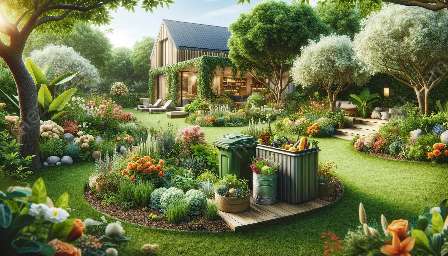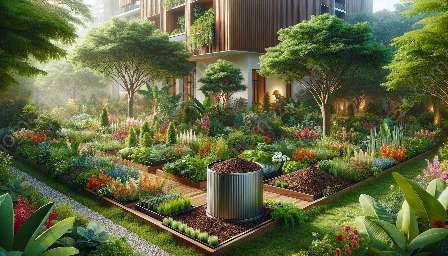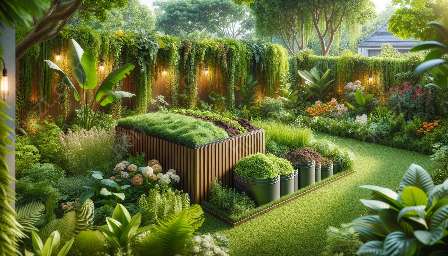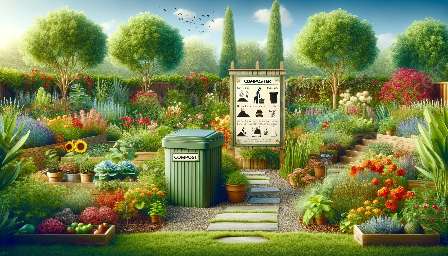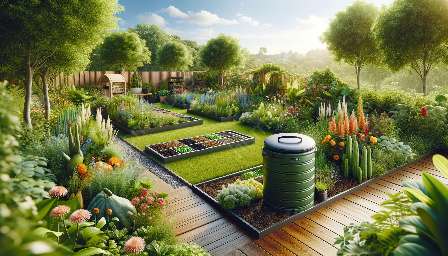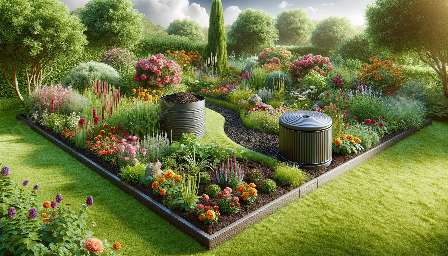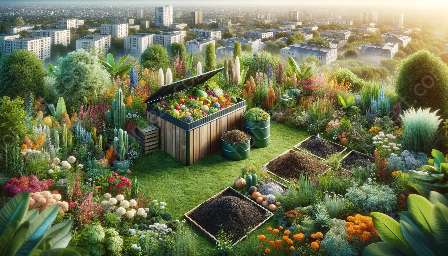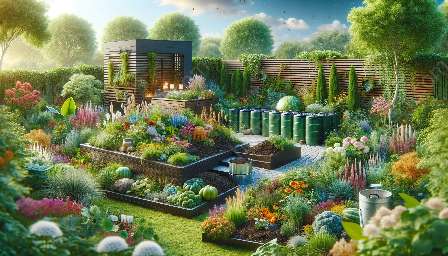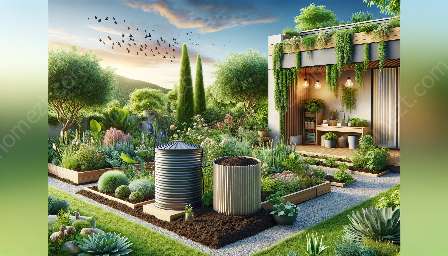Composting and waste reduction are essential practices for maintaining a healthy garden and landscape while also minimizing environmental impact. In this comprehensive guide, we will explore the benefits of composting and waste reduction, how they are compatible with gardening and landscaping, and practical tips for implementing these sustainable practices.
The Benefits of Composting and Waste Reduction
Composting and waste reduction play a crucial role in preserving the environment and promoting sustainable living. By diverting organic waste from landfills and turning it into nutrient-rich compost, you can reduce methane emissions and decrease the overall volume of waste in landfills. Additionally, composting enriches soil, promotes biodiversity, and reduces the need for chemical fertilizers, making it an eco-friendly choice for gardening and landscaping.
Composting for Gardening and Landscaping
Composting is a natural process that transforms organic materials like food scraps, yard waste, and plant debris into a valuable soil amendment. This nutrient-rich compost can be used to enrich garden beds, nourish plants, and improve soil structure. With proper composting, you can create a sustainable cycle of organic matter that benefits your garden and landscape.
Waste Reduction Strategies for Gardening and Landscaping
In addition to composting, waste reduction strategies such as reducing single-use plastics, reusing materials, and recycling plant containers can further minimize the environmental footprint of gardening and landscaping activities. By being mindful of waste generation and implementing sustainable practices, you can contribute to a cleaner and healthier environment for your garden and community.
How Composting Fits into Gardening and Landscaping
Composting aligns seamlessly with gardening and landscaping by providing a sustainable source of nutrients and organic matter for plants. Whether you are cultivating a vegetable garden, maintaining a flower bed, or designing a landscape, incorporating compost into your soil fosters healthier plant growth, improves soil structure, and encourages beneficial microbial activity.
Practical Composting and Waste Reduction Tips
- Start composting with a dedicated bin or pile in your garden or backyard. Use a balance of green (nitrogen-rich) and brown (carbon-rich) materials to create optimal compost.
- Implement waste reduction measures such as using compostable mulch, minimizing plastic use, and repurposing materials for gardening and landscaping projects.
- Explore community composting programs and educate others about the benefits of composting and waste reduction for gardening and landscaping.
Conclusion
Composting and waste reduction are powerful tools for promoting sustainability in gardening and landscaping. By harnessing the transformative potential of organic waste, you can nourish your garden, reduce environmental impact, and cultivate a greener future for generations to come.

